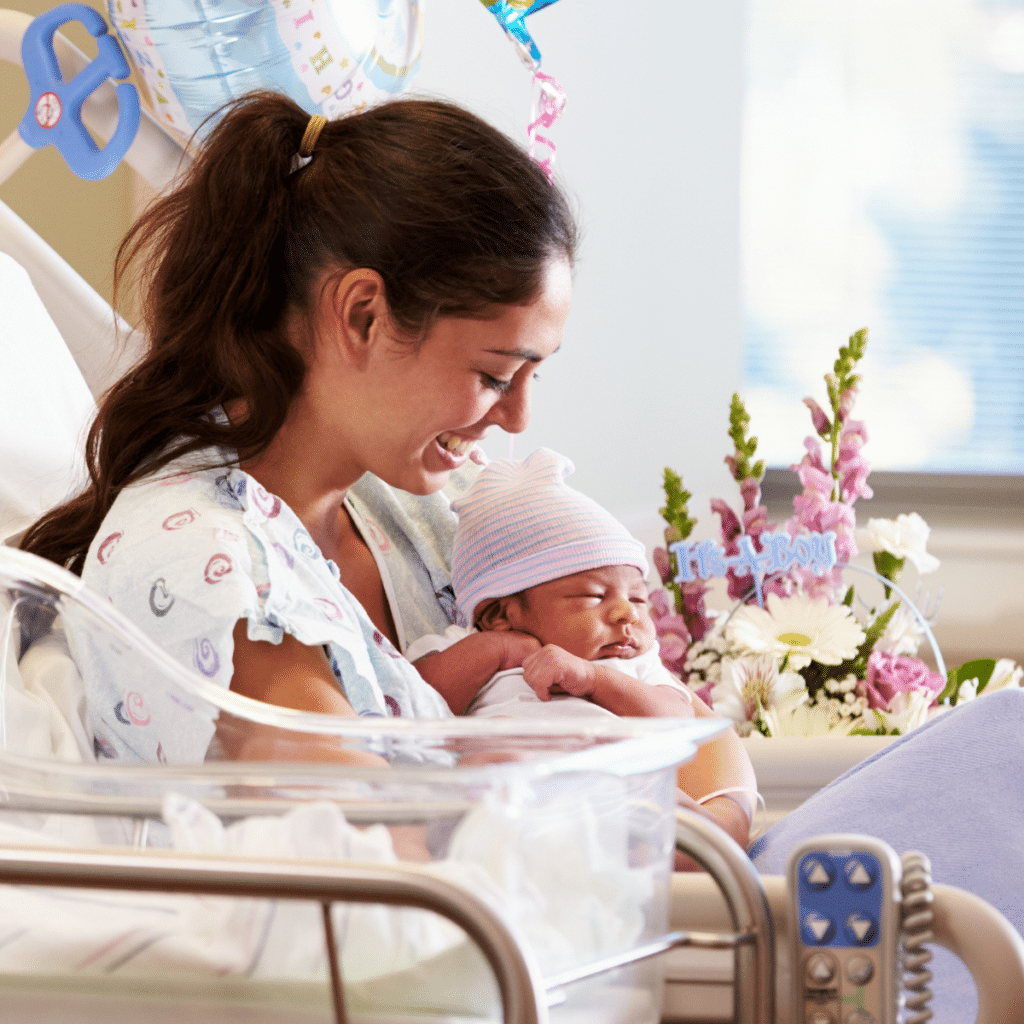Bringing a baby home is a momentous occasion filled with joy, anticipation, and a whirlwind of emotions for new parents. It marks the beginning of a new chapter in life, marked by love, nurturing, and endless discoveries.
From preparing the home environment to adjusting to the demands of parenthood, here’s everything you need to know about bringing the baby home:

Preparing the Home Environment:
- Nursery Setup: Establish a nurturing environment for your baby by designing a cozy, secure nursery space. This entails furnishing the room with a sturdy crib or bassinet, a convenient changing table, ample storage for diapers and clothing, and gentle lighting to facilitate nighttime feedings and comforting moments. Consider having a small stash of clothes and changing equipment in your main room, too, so that you don’t have to always head to the nursery for changes or cleanings after a bit of spit-up.
- Baby-proofing: Ensure the safety of your home by implementing baby-proofing measures to prevent accidents. Install safety gates at staircases and secure furniture to prevent tipping – they will start moving before you realise they can! Cover electrical outlets if that is recommended in your area, and remove any potential choking hazards from your baby’s reach. Consider packing away sofa blankets, as these could be a suffocation hazard if the baby accidentally pulls them down onto their face. These precautions create a secure environment for your little one to explore and grow safely.
- Stock Up on Essentials: Have essential baby supplies on hand, including diapers, wipes, formula or breastfeeding supplies, baby clothes, blankets, and feeding equipment. Remember to stock the next size up in baby clothes as babies grow quickly and unpredictably and having a few babies to hand when you wake up and your child no longer fits anything will be a relief.
- Prepare Meals in Advance: Plan and prepare meals in advance to streamline the adjustment period after welcoming your baby home. Take the opportunity to freeze homemade meals or stock up on convenient, ready-to-eat options that require minimal preparation. By having nutritious meals readily available, you can prioritize self-care and ensure that you and your family are well-nourished during this busy and exciting time of transition.

Adjusting to Parenthood:
- Establishing a Routine: Adjusting to a newborn’s schedule can be challenging, but establishing a routine can help create a sense of structure and predictability. Your baby will have their own pattern which can help you set regular feeding, sleeping, and bathing times to establish a rhythm for both the baby and parents.
- Seek Support: Don’t hesitate to seek support from family, friends, or support groups during the early days of parenthood. Accepting help with household chores, childcare, or emotional support can alleviate stress and provide much-needed assistance during this transition period. Consider clearing surfaces and putting away anything that makes it hard to dust for a few months – you don’t have to keep a clean house, but if you did want to tidy a little, running a duster over a clear flat surface is quick and easy compared to going around carefully curated decor.
- Communicate with Your Partner: Open and honest communication with your partner is crucial during this time. Share your thoughts, feelings, and concerns about parenthood, and work together as a team to navigate the challenges and joys of raising a child.
- Self-Care: Remember to prioritize self-care amidst the demands of parenthood. Take breaks when needed, prioritize sleep, eat nourishing foods, and engage in activities that bring you joy and relaxation.
Bonding with Your Baby:
- Skin-to-Skin Contact: Spend quality time bonding with your baby through skin-to-skin contact. This practice promotes bonding, regulates the baby’s temperature and heart rate, and supports breastfeeding.
- Baby Massage: Gentle massage can soothe and comfort your baby, promoting relaxation and bonding. Use baby-safe oils or lotions and gently massage your baby’s arms, legs, and back in a calming manner.
- Eye Contact and Talking: Engage with your baby through eye contact, talking, and singing. Babies are responsive to their caregivers’ voices and facial expressions, and these interactions promote emotional connection and language development.
- Cuddle and Snuggle Time: Take advantage of cuddle and snuggle time with your baby to create a sense of security and attachment. Hold your baby close, rock them gently, and enjoy the warmth and intimacy of these moments together.

Baby’s Health and Well-being:
- Follow Pediatrician’s Recommendations: Attend scheduled pediatrician appointments and follow their recommendations for vaccinations, check-ups, and developmental milestones.
- Practice Safe Sleep Habits: Ensure that your baby sleeps safely by placing them on their back on a firm mattress, removing pillows and soft bedding from the crib, and avoiding overheating.
- Monitor Baby’s Health: Keep an eye on your baby’s health and well-being by monitoring their feeding, sleeping, and diapering patterns. Trust your instincts and seek medical attention if you have any concerns about your baby’s health or development.
- Take Care of Yourself: Remember that your well-being is essential for your baby’s care and happiness. Prioritize self-care, rest when you can, and seek support from healthcare professionals or mental health providers if you experience postpartum depression or anxiety.
- Addressing Birth Injuries: Educate yourself on common birth injuries and their signs. Consult healthcare providers promptly if you suspect a birth injury and consider legal advice from birth injury attorneys Chicago if the injury may be due to medical negligence. Seek support from parent networks for guidance and emotional assistance.

Creating Memories and Cherishing Moments:
- Capture Moments: Capture precious moments with your baby through photographs, videos, and journaling. These memories will become treasured keepsakes that you can look back on fondly as your baby grows.
- Celebrate Milestones: Celebrate and document your baby’s milestones, from their first smile to their first steps. These milestones mark your baby’s growth and development and serve as reminders of the joys of parenthood.
- Family Bonding: Involve family members in caring for and bonding with the baby. Encourage siblings, grandparents, and extended family members to spend time with the baby, fostering a sense of belonging and family unity.
- Embrace the Journey: Parenthood is a journey filled with ups and downs, challenges and triumphs. Embrace the journey wholeheartedly, savoring each moment and cherishing your precious time with your little one.
Bringing a baby home is a life-changing experience that requires patience, love, and adaptability. You can navigate this transformative journey with confidence and joy by preparing the home environment, adjusting to parenthood, bonding with your baby, prioritizing their health and well-being, and creating lasting memories. Welcome to the wonderful world of parenthood!


